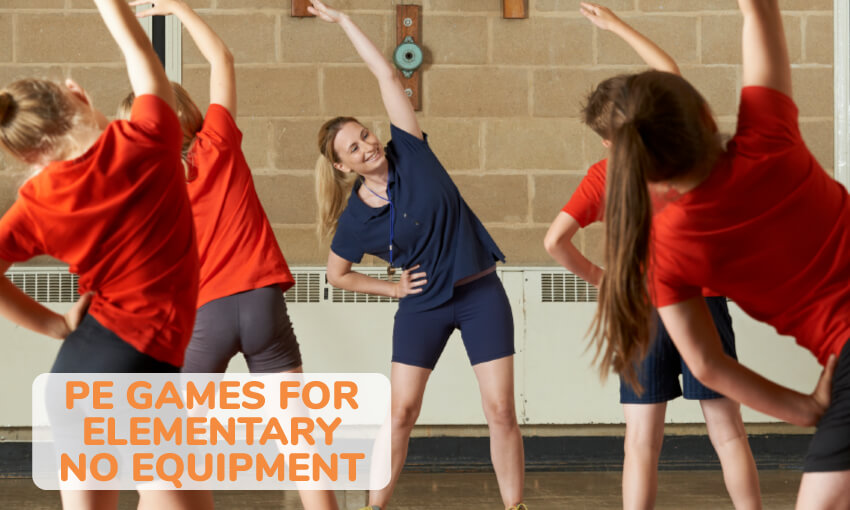| |||||||||||||||||||||||||||||
Contactelementary P.e. Games
Williamsport Partly Sunny |
Subscribe to eNews |
Williamsport Partly Sunny |
Subscribe to eNews |
Physical Education; Employment; Title IX; Forms; Food Service & Student Meals; Elementary School; High School; District Policies; Technology; Student Services; Safe2Say - Report a Threat or Harassment; Online Enrichment Activities; Annual Notices; Employee Intranet - Login Required; Resources. Courses will include age-appropriate fitness and skill building, games, and sports. Please check back regularly to see what we are currently learning and practicing. Currently, we are taking a short break from a major unit and playing a variety of fun P.E. Games such as dodgeball, 4-corner dodgeball, line tag, and kickball.
The Elementary program offers a continuum built on the Primary School environment. Like the Primary School, the Montessori materials are a means to an end. They are intended to evoke the imagination, then aid abstraction to generate a worldview about the human task and purpose. The child begins to ask questions about the origins of the universe, the nature of life, people and their differences, and so on. On a factual basis, interdisciplinary studies combine geological, biological, and anthropological science in the study of natural history and work ecology. Studies are integrated not only in terms of subject matter but in terms of moral learning as well.
Language Arts:
In a Montessori elementary classroom, language is presented imaginatively, not simply through rote memorization and the teaching of grammar and syntax rules. We realize that assigning written compositions, book reports, or spelling tests have the potential to kill the innate interest in language. It is the mystery and magic of language that will excite the child into carrying out further exploration of language. Curriculum areas introduced include; history of language, grammar and syntax, written composition, literature and a study of style.
Mathematics:
At the elementary level, we keep math integrated and not taught as a single subject area. This is quite an easy task as mathematics is a part and parcel of the Earth and the Universe. We introduce the children to the concepts that the base of the functioning Universe is mathematical. If one were to analyze the course of the stars, the formulas of chemicals, the angle of roof beams, or the circumference of the wheel, one could express these divergent concepts mathematically. Mathematics, therefore, has to be one of the tools of human exploration.
Geometry:
A six to twelve year old child takes great joy in intellectual activity, so the study of geometry is well suited for this age child. Although the laws that govern geometry will be given at the high school level, the geometry material will allow the children to create demonstrations of many of the major theorems. The child does not memorize these theorems or use the traditional way of proving the theorem but rather uses concrete materials to experience these theorems by making them tangible and understandable.

History:
In the Montessori elementary classroom, history, like all academic curricula, is integrated into the daily tapestry of the environment. Historical subjects are not separated but rather interwoven and networked. It is the child’s own story that we unfold to him in the tales of history. Ultimately, history is presented not just as a chronological presentation of society and civilizations, but as rich and diverse story about us.
Biology:
When studying plants and animals in the elementary program, we often start by relating the function to the part. Ultimately, the function explains the reason for behavior. As we attempt to capitalize on the child’s imagination, we begin to see the delight that is based in the way plants and animals meet the needs of survival. We strive to have the child begin to consider the different ways that plant and animals have devised a method of life. The lessons we provide in biology provide a key for the child to explore the natural world.
“Going Out”:
Going out is a Montessori term dealing with the children and their work in the implementation of an integrated and experiential education in the elementary classroom. Going out is not synonymous with field trips. Field trips (which Montessori students also participate in) are organized by adults for the children, whereas going out is organized by the children for their own particular need. Going out may address a child’s specific need for further exploration of a topic started in the classroom (i.e. visiting the post office to understand how the US Mail system works) or it may simply allow the child to explore the fundamental structure of society that cannot be addressed solely in the classroom.

Spanish:
Montessori has a full time elementary Spanish teacher and all students have several lessons each week in Spanish. The emphasis of the program is on conversational Spanish, language acquisition, and cultural enrichment. Spanish also provides a stepping stone to further language development as the child grows.
Physical Education (P.E.) & Wellness:
P.E. at Montessori is a participatory, rather than a competitive program. It encourages children to take advantage of the different seasons and our incredible natural environment. Teachers interact with children and encourage physical activity through a variety of games and activities both on and off the campus. By playing games together outside the classroom students learn physical skills, good sportsmanship and camaraderie. They also learn about plants, animals and respect for nature while exploring our diverse natural community. P.E. occurs twice a week and below is an outline of some of the activities children participate in:
Music:
The goal of the music program is to allow the children to learn about notes, rhythm and sounds by singing and listening to various instruments. It is also to give children the opportunity to perform vocally for each other, for younger students and their parents.

Drama:
Drama is an extension of our language arts curriculum. Each year students help create, write and perform their own plays or adapt their own version of a classic favorite. Montessori performances help give each child a wonderful sense of self discovery and confidence, as well as providing additional opportunities for public speaking.

Visual Art:
Children have art class two afternoons a week, though art is also naturally woven into the regular school day. Through painting, drawing and clay they learn to express themselves in new ways and through the study of art history children learn to appreciate the artistic expression of others throughout the world. Additionally, parents with special skills such as photography have led classes and helped older students develop special projects.
